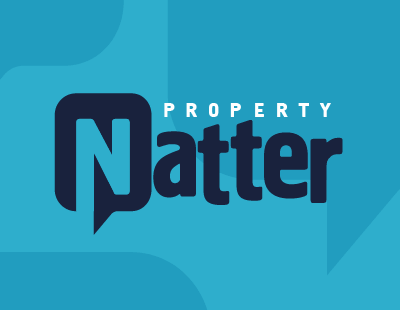It may be a measure of the government’s incompetence in the area of housing that two recent major announcements were sorely mishandled in different ways.
The first was the embarrassment that the so-called once-in-a-generation reform to outlaw the selling of new leasehold houses (the subject of a string of Michael Gove interviews throughout November) failed to actually make it into the 132-page Leasehold and Freehold Reform Bill published last week.
Gove admitted that his department had too little time to draft the wording - although, presumably, some spin doctors could have been re-allocated from ringing property journalists about the breakthrough measure, and instead be put on to actually writing the reform in the first place.
The second bungled news was something completely different - an announcement which didn’t even merit a mention on Gove’s department website.
Instead, it was left to a junior minister to tell a Commons committee that the Housing Ombudsman service (until now devoted solely to dealing with social housing landlords) would have its remit extended by the Renters Reform Bill to operate as a redress system for disputes between England’s millions of private tenants and private landlords too.
You missed that news? Of course you did - because the government failed to formally announce it.
Expand the remit
I’m going to concentrate on the Ombudsman change because, while we would all welcome clarity this decision will now mean that there are four redress systems in operation across our industry.
There is The Property Ombudsman (handling letting agents and estate agents); the Property Redress System (again dealing with letting and estate agents); and soon the Housing Ombudsman (dealing with landlords and, inevitably, their letting agents where appropriate). The fourth redress service - and I bet many readers may not even have heard of this - is the New Homes Ombudsman which arbitrates between buyers and builders of new build homes.
The decision to expand the remit of the current Housing Ombudsman from social-only to social-and-private rental sectors has been heavily signposted.
Back in May, Richard Blakeway - the current Housing Ombudsman - wrote that the creation of a private sector redress system operating between landlords and tenants was neither bureaucratic nor unfair. “Our decisions are impartial and rooted in fairness: around half of the cases we investigate are not upheld. This can be an effective way for the landlord to resolve a dispute where relationships with tenants have broken down. If something has gone wrong, the remedies are not punitive – they are simply aimed at putting the consumer back in the position they would have enjoyed had things been as they should” he told readers.
My concern is not that the new redress service which landlords must deal with is Blakeway’s, but whether across our industry as a whole we now really need four different Ombudsman services? Whatever happened to clarity for the consumer?
I appreciate it’s a lot for one body to handle a wide range of disputes: across our industry that would typically include, say, a private tenant complaining about a non-returned deposit; a buyer unhappy with the quality of a new-build home; a seller who feels the sales agent didn’t communicate an offer; and a social tenant pestered by anti-social neighbours.
The one industry-wide Ombudsman service dealing with all that would have to be large, with a strong leadership and management, and clear reporting guidelines for consumers to follow.
There will be pros and cons
But, in the way of these things, are the four Ombudsman services which are shortly going to exist not going to require their own bureaucracies, their own red tape, and rules as to whether a consumer has done enough on their own before seeking intervention from a redress service?
Is it going to be clear to the average person in the street - who will be either an owner, social or private tenant - which Ombudsman service is which?
And what of the complicated cases, which might have benefitted from a one-stop-shop Ombudsman service?
I’m thinking of the private Right To Buy owner who went on to sell the flat in question without declaring that the council tenant living next door was anti-social - which of the various Ombudsmen does that one go to?
Or the private landlord selling up, whose tenant feels aggrieved because the selling agent doesn’t give sufficient notice for viewings - which Ombudsman service works for that complaint?
Inevitably there will be pros and cons, and I accept the general point that large departments can be clumsy and slow-moving.
But if we can cope with one Department of Levelling Up, Housing and Communities to cover all those housing industry areas, and if each part of the country has one local authority to cover sometimes a million or more residents, and if we have one Competition and Markets Authority to handle the extraordinarily varied businesses of UK plc - then why can’t we have just one Housing Industry Ombudsman?
Why must we have four?
If I don’t like what’s happening, I suppose I can always complain… but who to?













.jpg)
.jpg)






.png)



Join the conversation
Jump to latest comment and add your reply
Money for nothing as you can bet that the private landlord who uses a letting agent will have to sign up.
No simplicity in that if you use a letting agent to manage your property then you are covered!
Yes there should be a redress for private landlord to private tenant but if a private landlord uses an agent to fully manage their portfolio why do they need to sign up to another ombudsman?
Please login to comment